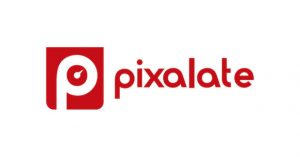The Display Market Looks To Consolidate (Anyone Want To Gamble On How Many Online Buying Points There Will Be This Time Next Year?)
by Ciaran O'Kane on 12th Oct 2011 in News


Paul Vassallo is the Head of Online Trading / Display at Media Contacts. Here he discusses potential consolidation in the European online display market.
The display space has rapidly grown and fragmented over the last few years, with new technologies, networks and video services in particular, emerging on a weekly basis. This has made it very challenging to 1) differentiate between the many offerings and 2) to consolidate spend and gain efficiencies. To put this in to context, we now have 100+ advertising networks in the UK! In the last few months however we have seen a trend towards consolidation in the marketplace as vendors look to differentiate their product suites and compete on a much larger scale.
Who’s Consolidating?
Google are the trail blazers. They have sought to find a competitive position in the display space. This began with their purchase of DFA and then the acquisition of online video leader You Tube, and subsequently a massive play into the exchange space, adding Invite and Admeld to their Google ad exchange product. They’ve also added Beatthatquote to give them a hold in the aggregator space along with using the technology to improve their price comparison offering. Others have reacted to ensure that Google are unable to dominate the display space in the way they do search.
AOL appear to be the most aggressive in the counter attack on this, with the acquisition of the Huffington Post and Go Viral for a total of $412m, predominantly funded by their dial up broadband business. These represent interesting moves as both fit with their move towards a content based strategy. The Huffington post provides AOL with editorial from some of the world’s most influential bloggers and influencers. goviral provides a platform to distribute this content to a wider audience increasing the brand value. Interestingly, there is also revived talk of them making an offer for Yahoo! following the recent firing of CEO Carol Bartz and general discontent at the portal. This would make the UK portal landscape very interesting.
In addition to the goviral sale, we’ve seen significant change within the video space with next generation networks (data driven) realising that they need a video offering to boost their propositions or video proposition acquiring networks to provide technology and distribution. Specific Media started this trend by purchasing US video firm BBE (along with My Space), however others quickly joined in with Collective buying WebTV, Blinkx acquiring Burst Media, Amazon buying Love Film and Tesco taking over Blinqbox to counter this. The Collective and Specific Media deals are of particular interest, as they allow sophisticated re-targeting to be delivered from video campaigns.
The other key player on the acquisition trail is MSN. Having recently purchased Skype, they are most likely to head down the exchange buying route similar to Google. They already hold a stake in AppNexus, but expect Microsoft to fully acquire them in the next year. How they integrate Skype with their MSN Messenger product will be interesting and is likely to define the success of this acquisition.
We’re also watching very closely the discussions around an alliance between Yahoo!, MSN and AOL, to sell each other’s display inventory (similar to that of Yahoo! and MSN in the search landscape). This strategy appears to have been designed to specifically keep Google(and Facebook) at bay, but for now at least this looks like a US only move.
What does the future hold?
We expect this trend to continue over at least the next twelve months, with the portals and Google in particular fighting for share of the display market. Don’t be surprised if Yahoo! finally ends up being sold and expect to see the key independent players in the exchange space being bought up by the dominant display players. Video/ networks will continue to consolidate, as the numbers of players in this space is simply unsustainable.
Where do we come in?
We continue to react to these changes and develop partnerships with the key players as and when their propositions become attractive to our client base. Of those making big acquisitions, our partnerships already exist with the likes of Google, AOL, MSN, Specific Media and Collective Media.
As offerings improve and our client base evolves we continue to adapt our partnerships. This gives us early access to their products, leading pricing and strategic input, allowing us to provide clients with best in class solutions.
This has given us first access to a number of their products as and when they have reached sufficient integration to be beneficial to our client base. As soon as AOL purchased Go Viral we entered into discussions about how to join the two together and therefore make individual campaigns with each of them work harder. Similar conversations are in place between WebTV and Collective media.
The move towards content allows us to leverage this within partnerships that we have built with the major players, in particular with AOL and MSN, to deliver a much greater level of integration within their sites and therefore a more seamless user experience.
On the more traditional media front we now use You Tube as a viable alternative for high impact activity to the likes of MSN, where availability is much lower. We can re-target their content network through our strategic partnership with ad trading firm, Adnetik, giving increased client performance.
These acquisitions are allowing us to push the boundaries of what has been previously possible. As the trend continues new opportunities will continue to arise and we will be ready maximise them. 2012 looks set to be an interesting year.
Ad NetworkAd ServerAgencyDisplayExchangeProgrammaticPublisherTargetingTrading








Follow ExchangeWire